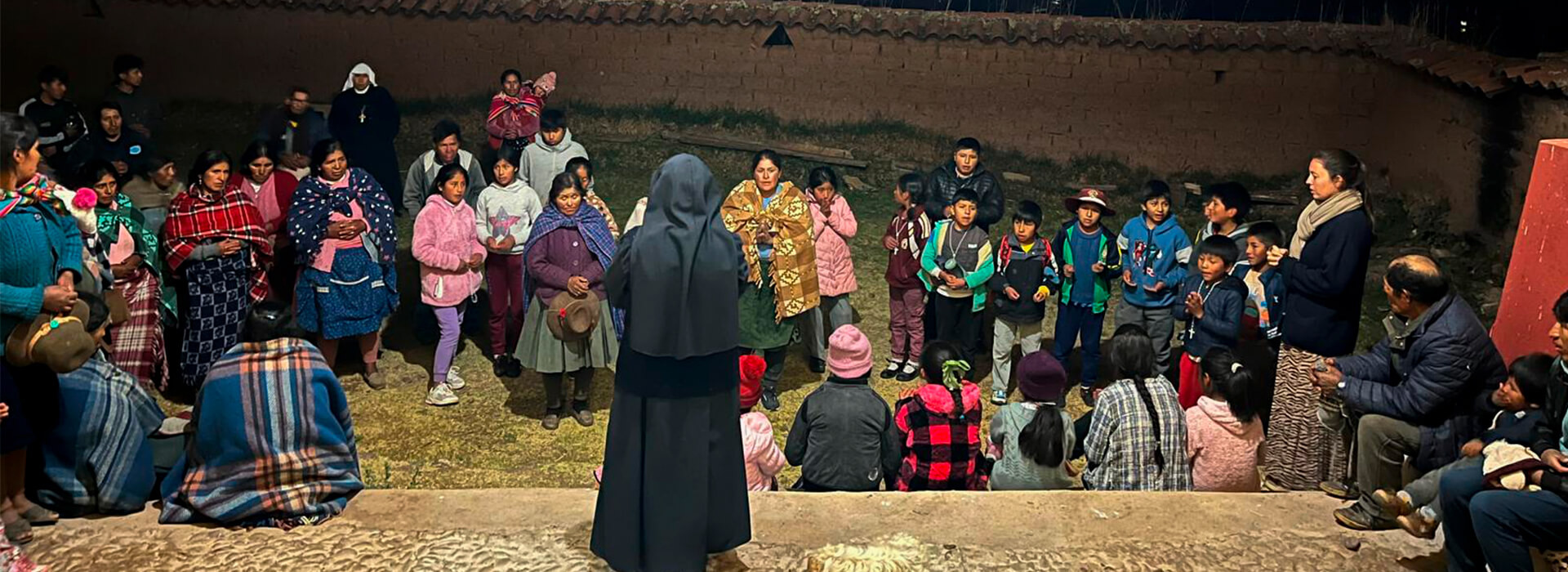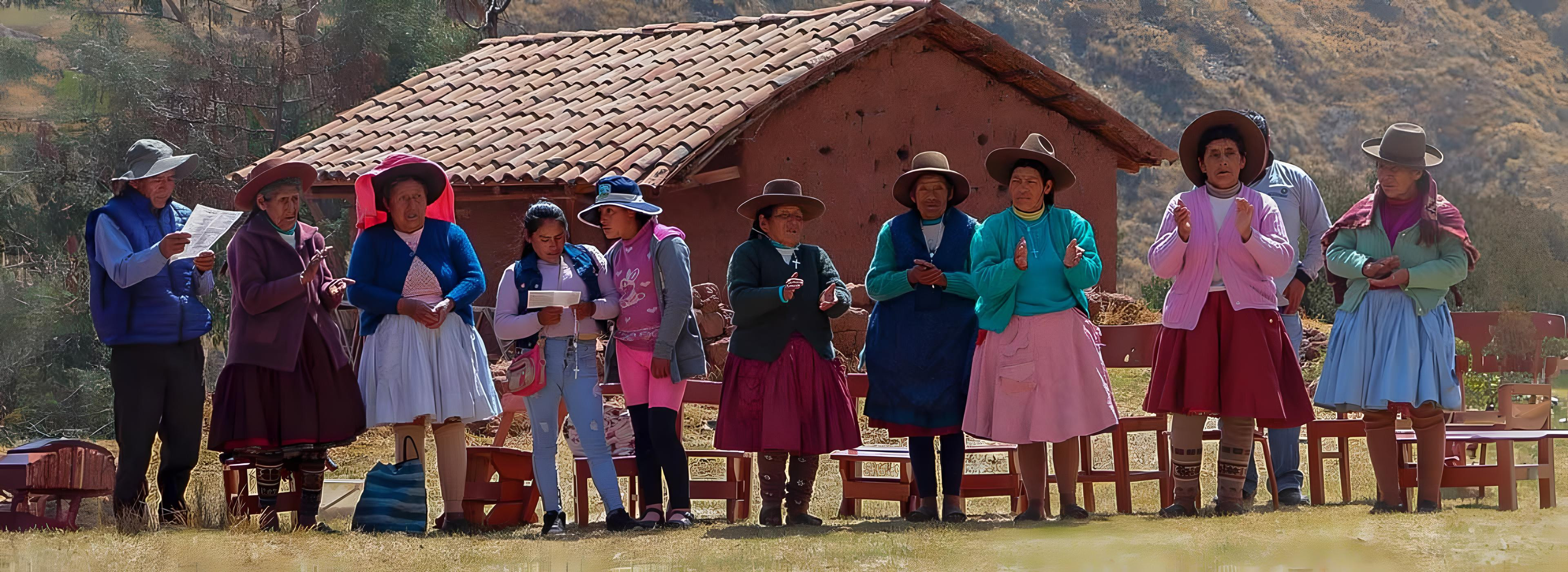Spiritual Reflection on Holy Mary, Mother of the Poor, model of the spiritual life
FEB 11, 2024
Fr. Alois Höllwert, msp (Austrian)
We continue our meditation on Holy Mary as a model for our spiritual life. We see how our Holy Mother is a shining beacon that guides us on our path to the Lord. While Christ is the only model to imitate, in Blessed Mary we see reflected the exact attitudes that will make us true followers of Jesus. These attitudes are never missing from an authentic spiritual life: adoration, listening as a believer in the Word of God, and joyful gratitude for the gift of God.
In the previous issue of “Ut unum sint” we saw how Holy Mary responded to the announcement of the archangel Gabriel, opening the door so that God could enter humanity, participating in his story not only as God but also as Man. The Gospel passage of the Annunciation according to Saint Luke makes us contemplate the encounter of God with His creature. It is the humility of God, Who lowers Himself, asking like a beggar for the “Yes” of Holy Mary to be able to become incarnate. Mary's humility is manifested in her docility to the divine message expressed in her response, “Let it be done to me according to your word.” Blessed Mary fully deserves to be invoked with the title of Mother of the Poor, as we are used to doing in our communities of Missionary Servants of the Poor (MSP), because she accepted a mission that surpassed her infinitely, that of being the Mother of God. Likewise the missionary can rely only upon God, Who has shown throughout the entire history of the people of Israel that He is the God who saves the poor. Faced with the mission that God entrusted to her, the Blessed Mother could only feel herself the poorest of all creatures. But it was her humility that allowed her to trust in the grace of God, which was His gift to her, choosing her to be His Mother.
Immediately after the passage of the Annunciation we find that of the Visitation (Lk 1:39-56). In it we see how the expectant Mary spends the time of her waiting. She does not lock herself in her little house, as we might imagine, jealously guarding “her secret,” but rather she sets out, going “quickly” to meet a person more in need of support than herself, her elderly cousin Elizabeth. This promptness is the most authentic mark of a high degree of charity, which in the Blessed Mother has reached its peak. She cannot keep her cousin waiting at this pressing moment.

We have here a model of complete faith as a response to God Who calls us to a particular mission. True faith must become hope and, above all, charity. For this reason, Holy Mary cannot do anything other than go to meet her cousin Elizabeth, to share with her her immense joy and help her with her humble service in the last months before the birth of John the Baptist, months that for the elderly Elizabeth, who had not had children, must have been difficult. In the Visitation passage we can see that spiritual life means accepting being a creature of God, “the work of his hands,” and that means making His gifts bear fruit immediately and not “burying” them as the last servant did in the Gospel parable of the talents (Mt 25:14-30). Blessed Mary is the one who most accepted being a creature, because she made God's gift fully bear fruit, becoming a messenger of hope and a humble servant of the elderly Elizabeth through her exquisite charity, which made her thoughts focus in her cousin instead of anxiously considering her own problems (what to say to Joseph? what will people say?).
Thus, Holy Mary becomes an instrument of communication of grace to others. (Only God gives grace, but He uses his creatures to communicate it.) In this way we can understand that fully living the spiritual life of grace (received in baptism) means accepting being a child of God and serving Him as a docile instrument in His hands.
That is why Mary receives this blessing from the lips of Elizabeth: “Blessed is she who has believed, that what the Lord has told her will be fulfilled” (Lk 1:45). Saint John Paul II tells us that this blessing extends over her entire life, of which it is the secret, “The fullness of grace, announced by the angel, means the gift of God himself; Mary's faith, proclaimed by Elizabeth in her Visitation, indicates how the Virgin of Nazareth has responded to this gift” (Encyclical “Redemptoris Mater”, no. 12).
Mary then proclaims the Magnificat, the song that acutely recognizes God's action in the world, springing from the heart of the one who has opened herself most to His grace. This prophetic song is in the present tense, no longer as something future, because the mystery of the Incarnation of the Son of God in Mary has managed to realize in superabundance all the promises of the prophets. Holy Mary, Mother of the Poor, teach us to live faithfully our supernatural spiritual life that springs from baptismal grace and is realized in fidelity to the mission that God has entrusted to us in the world.







